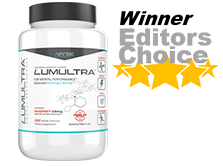In today’s fast-paced and demanding world, maintaining optimal brain health is crucial for overall well-being and productivity. We often overlook the profound impact that nutrition has on our cognitive function. It has been widely recognized that an unhealthy diet can not only lead to physical ailments but can also detrimentally affect brain health. However, by understanding the relationship between diet, nutrients, and cognitive function, we can make informed choices to nourish our brains and promote long-term mental acuity.
The brain, being the control center of our body, requires a significant amount of energy to function properly. This energy comes from the food we consume. A diet rich in essential nutrients is vital for the brain to perform optimally. Studies have shown that various nutrients, such as omega-3 fatty acids, antioxidants, vitamins, and minerals, play a pivotal role in maintaining brain health.
Omega-3 fatty acids, commonly found in fatty fish, walnuts, and flaxseeds, have been extensively studied for their positive effects on brain health. These powerful fatty acids are essential for the formation and maintenance of brain cell membranes. They also support proper communication between brain cells, which is crucial for cognitive processes such as memory and learning.
Antioxidants, such as vitamin C, vitamin E, and flavonoids, protect the brain from oxidative stress caused by free radicals. Oxidative stress is linked to the aging process, neurodegenerative diseases, and cognitive decline. Including foods rich in antioxidants, like berries, dark chocolate, and leafy greens, in our diet can help ward off these detrimental effects and promote brain health.
Vitamins and minerals also play a crucial role in maintaining optimal brain function. B vitamins, particularly folate, vitamin B6, and vitamin B12, are essential for the production of neurotransmitters, the chemical messengers responsible for cell-to-cell communication in the brain. Inadequate intake of these vitamins can lead to cognitive impairment and mood disorders. Good dietary sources of B vitamins include whole grains, legumes, and leafy green vegetables.
Minerals, such as iron, zinc, and magnesium, are vital for brain health as they support various processes, including energy production, neurotransmitter synthesis, and the formation of neural connections. Deficiencies in these minerals have been linked to cognitive deficits and impaired memory. Incorporating foods like lean meats, nuts, seeds, and whole grains can ensure an adequate intake of these minerals.
In addition to these essential nutrients, it is important to maintain a healthy and balanced diet overall. Consuming a variety of whole foods, including fruits, vegetables, whole grains, lean proteins, and healthy fats, not only provides a wide array of nutrients but also supports overall brain health. Avoiding excessive intake of processed foods, added sugars, and unhealthy fats is equally important as these can have detrimental effects on brain function.
It is worth noting that nutrition is just one aspect of maintaining brain health. Incorporating regular physical exercise, stress management techniques, and quality sleep into our lifestyle can further enhance cognitive function. A holistic approach to brain health that encompasses optimal nutrition, regular exercise, and comprehensive self-care practices can synergistically support long-term brain health and overall well-being.
In conclusion, the impact of nutrition on brain health is undeniable. A diet rich in essential nutrients, such as omega-3 fatty acids, antioxidants, vitamins, and minerals, is crucial for maintaining cognitive function and promoting long-term brain health. By incorporating a variety of whole foods and avoiding processed and unhealthy options, we can nourish our brains and enhance our overall well-being. Remember, every bite we take is an opportunity to support our brain, so let’s make mindful choices and prioritize our brain health.
